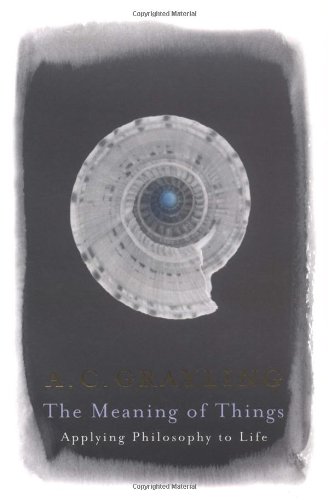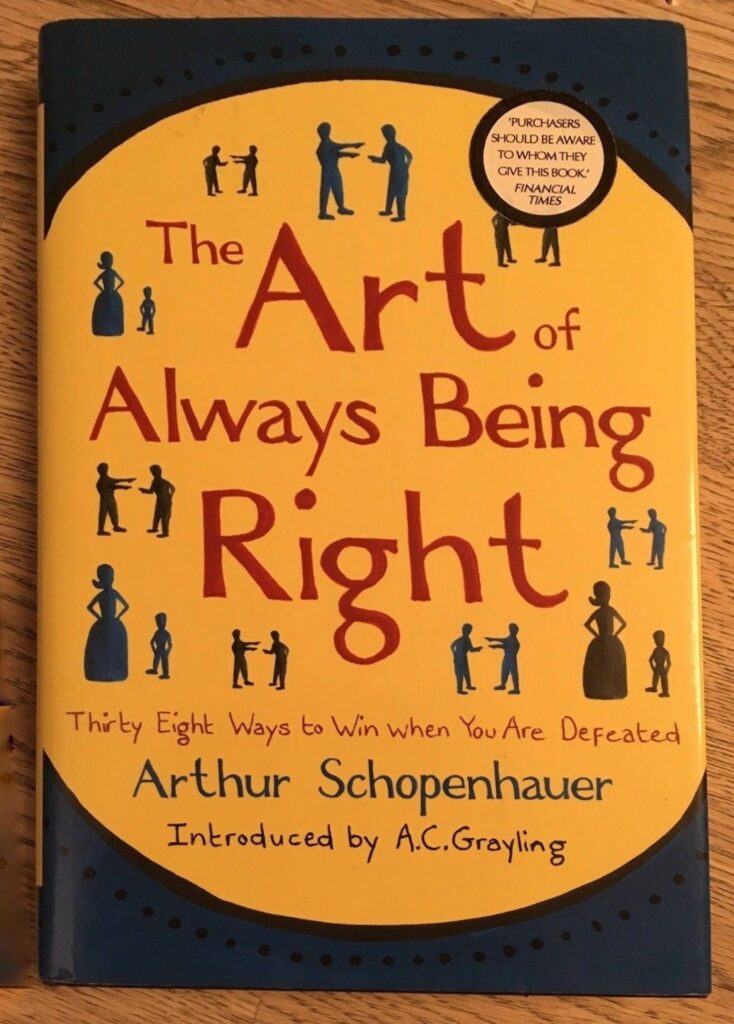
This book of thoughtful mini-essays on life’s big topics is a pleasure to read. But maybe I only think that because I agree with a lot of what Grayling has to say. But maybe I only agree with him because he’s right. You’ll have to read it and decide for yourself.
Most of the essays are only a page or two, so this is a good book to delve into at random. (In fact that’s what Grayling recommends. I always ignore recommendations like that though — I’m a “begin-at-the-beginning” kind of guy.) They are grouped into three categories: Virtues and Attributes (such as Fear, Death, and Blame); Foes and Fallacies (Racism, Christianity, Capitalism); and Amenities and Goods (Education, Reading, Age). The essays originally appeared as newspaper columns, so there is some repetition and a few rough edges — the book could do with a bit of editing.


